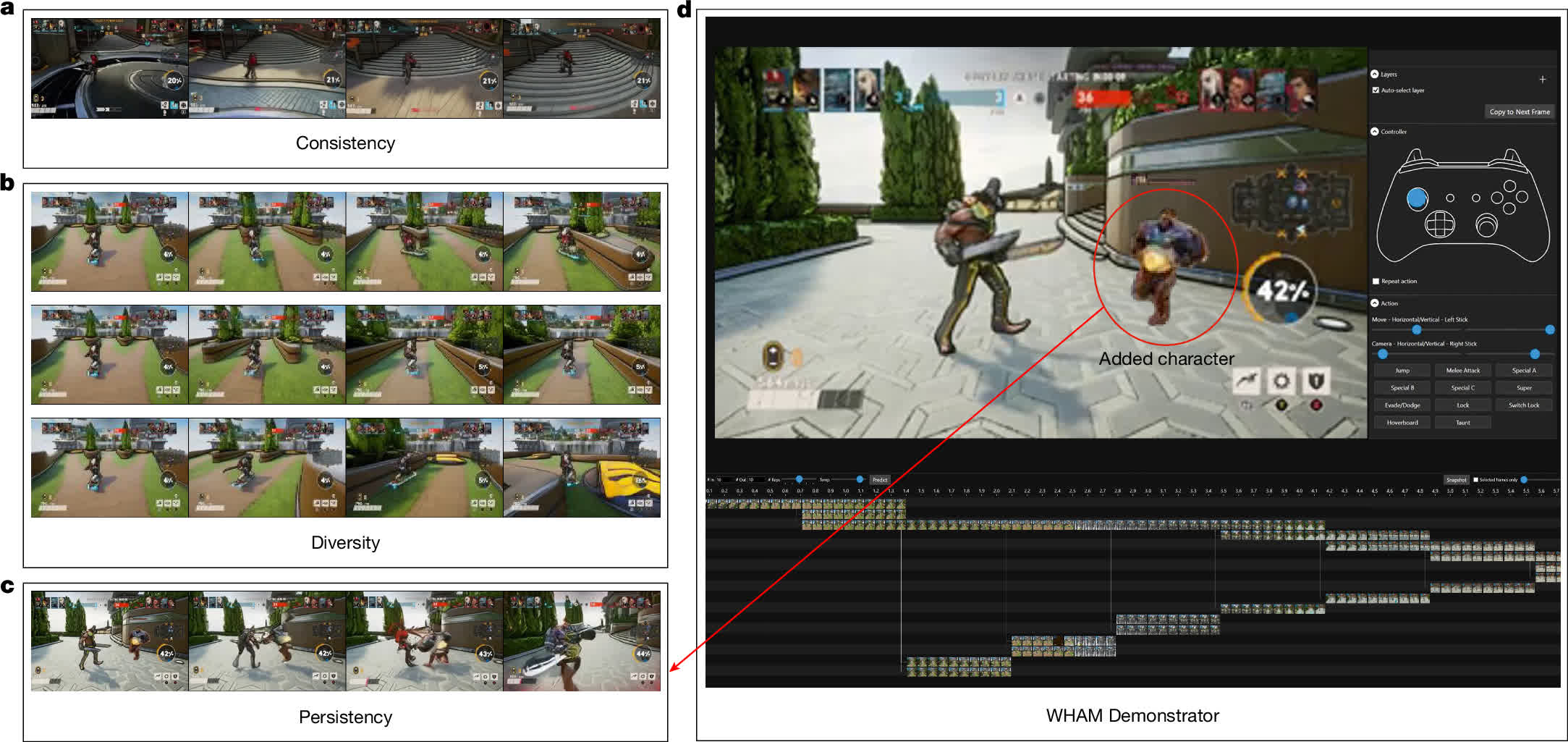Briefly: Regardless of the controversy surrounding generative AI, some recreation designers use the expertise to brainstorm ideas throughout improvement. Microsoft’s new open-source mannequin goals to make this observe possible for interactive content material. It focuses on sustaining consistency throughout many frames whereas recognizing and integrating participant enter.
Microsoft researchers just lately launched Muse, a generative AI mannequin designed to extrapolate interactive online game situations from photographs, clips, and recorded participant enter. The device goals to streamline recreation improvement whereas upholding moral coaching practices. The weights, pattern knowledge, and interactive interface for Muse, which Microsoft calls a “World and Human Motion Mannequin,” at the moment are obtainable on Azure AI Foundry. The builders mentioned particulars of the expertise on the corporate’s analysis weblog and in a newly printed examine in Nature.
Following coaching on a million updates, Muse can faithfully predict as much as half a minute of gameplay primarily based on one second of precise footage and 9 seconds of participant enter. In contrast to prior fashions, the place recreation particulars disappear or develop into distorted as quickly as they go away the seen body, Muse remembers particulars like terrain, characters, and recreation mechanics.
In a video interview with Xbox head Phil Spencer, Dom Matthews from Ninja Principle defined that the corporate does not plan to make use of Muse to construct content material for finish customers. As an alternative, the studio plans to make use of it to assist draft and iterate concepts by quickly producing snapshots of a cohesive imaginative and prescient. It stays unclear whether or not different builders would comply with an identical philosophy, however Microsoft will not mandate the usage of its fashions throughout its studios.
Some builders instantly expressed disinterest. David Goldfarb, who labored on Battlefield, Mass Impact, and Killzone, provided a short, dismissive response. Marc Burrage from Artistic Meeting informed Wired that even proscribing generative AI to the prototyping stage can hurt recreation improvement by robbing staff of hands-on expertise.
Click on to enlarge
Spencer optimistically speculated that applied sciences like Muse may facilitate recreation preservation by serving to builders port older titles to trendy gadgets. Microsoft has often promised to protect its prospects’ digital libraries throughout {hardware} generations, however it stays to be seen whether or not regenerating them with AI can produce passable outcomes. Frank Cifaldi from the Video Sport Historical past Basis is not as optimistic, evaluating the concept to a photocopy of a portray.
Microsoft additionally confronted harsh criticism concerning Muse’s coaching knowledge. A lot of the tough controversy dealing with AI fashions stems from corporations utilizing materials from throughout the web with out the unique creators’ consent. Microsoft sidestepped the difficulty by coaching Muse on video games it already owns.
The preliminary demonstration used participant telemetry knowledge from Ninja Principle’s multiplayer shooter, Bleeding Edge. Customers who agreed to the sport’s EULA have already consented to assist prepare Muse. Theoretically, the corporate might prolong the observe to fashionable titles like Minecraft, Name of Obligation, Halo, Overwatch, StarCraft, Doom, or Forza.




